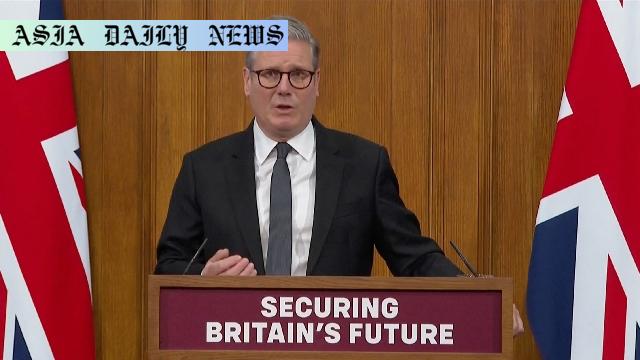Immigration: The UK government introduces stricter immigration controls targeting work visas, English language skills, and citizenship requirements.
UK introduces stricter immigration rules focusing on work visas, English ability, and citizenship requirements including residency extensions.
Net migration hits 728,000, stirring public dissatisfaction over perceived misuse of taxpayer funds and economic pressure.
Concerns arise from social care sectors and universities reliant on foreign workers and students affected by visa adjustments.

Introduction to the Tightening UK Immigration Policies
The United Kingdom’s government has introduced new, stricter immigration measures amidst increasing public frustration over rising net migration numbers. Under these adjustments, the regulations for work visas, English language skills, and citizenship eligibility will be significantly tightened. Officials aim to address widespread public discontent and appear responsive to grievances about resource allocation, societal strain, and employment disparities.
Prime Minister Keir Starmer announced this initiative, emphasizing the need for control over all aspects of immigration. Key focus areas include increased language proficiency benchmarks, longer residency requirements for citizenship applications, and stricter timelines for foreign graduates post-study. While the measures aim to curb net migration levels, social care industries and academic institutions reliant on foreign labor and students are voicing serious concerns over potential repercussions.
Key Policy Changes and Their Implications
Among the proposed measures, significant alterations are planned for work visas. Applicants will now face higher English language fluency requirements. This shift is aimed to ensure ease of integration into workplaces and communities while promoting opportunities for UK citizens. Dependents accompanying migration applicants will also need to meet similar fluency benchmarks, adding rigorous checks for families entering the country.
Additionally, the government has revised its citizenship duration policy. Migrants will now need to live in the UK for ten years, doubling from the previous five, before they can apply for citizenship. This extended timeline aligns with efforts to deter short-term migrations and reinforce commitment to contributing to the UK. Simultaneously, foreign post-graduate students will find their post-study work timeline reduced from 24 months to 18, potentially pressuring universities and reducing the influx of international talent to the UK economy.
Addressing the Public Dissent Over Immigration
High net migration figures, currently standing at 728,000, have fueled dissatisfaction among segments of the British public. Many citizens feel overwhelmed by the perception that taxpayer money disproportionately supports migrants over struggling households amidst economic stress. The reforms are poised to demonstrate governmental commitment to addressing these societal tensions by prioritizing citizen welfare and domestic workforce opportunities.
The rise of anti-immigration sentiment has emboldened right-wing parties, creating political challenges for Labour. Reform UK, a party strongly opposing immigration, gained traction in local elections. This shift signals growing public discontent echoing misplaced concerns towards inclusivity and productive integration policies.
Concerns from Key Sectors
Despite the focus on curbing migration, sectors such as healthcare and academia are voicing apprehensions about these changes. The healthcare industry, particularly social care, heavily depends on foreign workers filling staffing shortages. Stringent immigration rules risk exacerbating workforce deficits, further threatening an already strained public care system.
Universities equally face a potential dip in international student enrollment due to post-study work reduction rules. The academic sector depends on these students for financial contributions, workforce replenishment, and enhancing multicultural diversity.
Balancing Public Expectations with Practical Implications
While the government’s efforts to address public concerns are commendable, implementing measures that strategically balance restrictions without strangulating vulnerable sectors is critical. The focus on employment prioritization aligns with targeting economic pressures, yet broader collaborations with the affected industries might minimize adverse long-term fallout.
Over-tightening might accidentally widen divides within communities, worsen labor shortages, and compromise the UK’s reputation as a welcoming hub for global talent. The challenge remains – drafting policies responding to valid concerns while aligning with long-term economic and societal goals.
Commentary
Understanding the Broader Context of Migration Concerns
The UK’s decision to tighten immigration rules comes at a pivotal moment when societal, political, and economic pressures increasingly intersect. Addressing public dissatisfaction is imperative, particularly when net migration figures have become a central talking point. Citizens battling inflation and high living costs naturally look to the government for answers, with immigration often framed as both a cause and solution within policymaking debates.
Possible Repercussions and Public Sentiment Shifts
On the surface, bolstering certification and eligibility standards seems pragmatic. Ensuring newcomers contribute substantially to the British economy and society is valid, yet oversimplifications may restrict communities where migrant workers have demonstrably contributed positively. Shifting policies might placate certain voter bases temporarily but risks unintentionally marginalizing skilled labor pipelines critical to both healthcare and education sectors.
By requiring migrants to stay ten years for citizenship or limiting post-study stays, the country potentially signals a less inviting stance to global opportunity seekers. It’s worth pondering whether stricter English benchmarks adequately weigh regional immigration-specific nuances like demand across low-paid vocational jobs or personalized academic trajectories aiding integration success rates.
The Balancing Act Ahead
Prime Minister Starmer and his government must strike an equitable balance, responsibly highlighting citizen-first policies while fostering trust among immigrants contributing meaningfully. Strategic industry collaborations, targeted sector exclusions, or restructured student outranges could buffer unintended consequences. Otherwise, frustrated talent drain amidst restrictive climates risks hampering progressive visions towards a thriving UK economy harmonizing multi-national skillsets.


